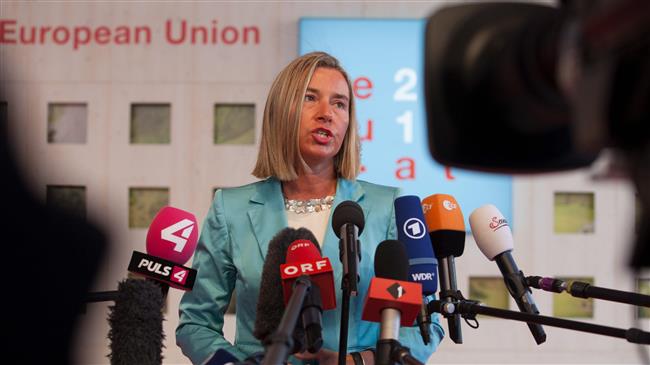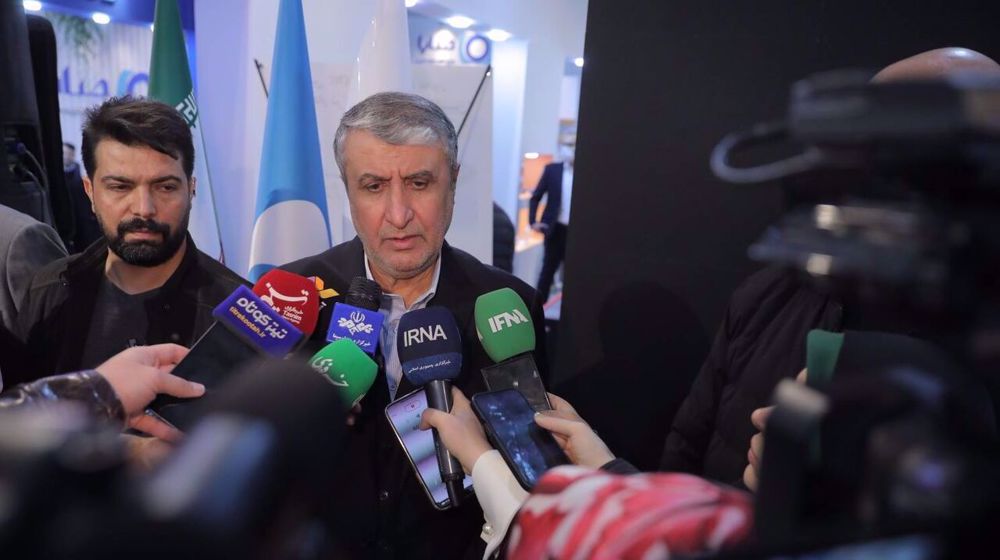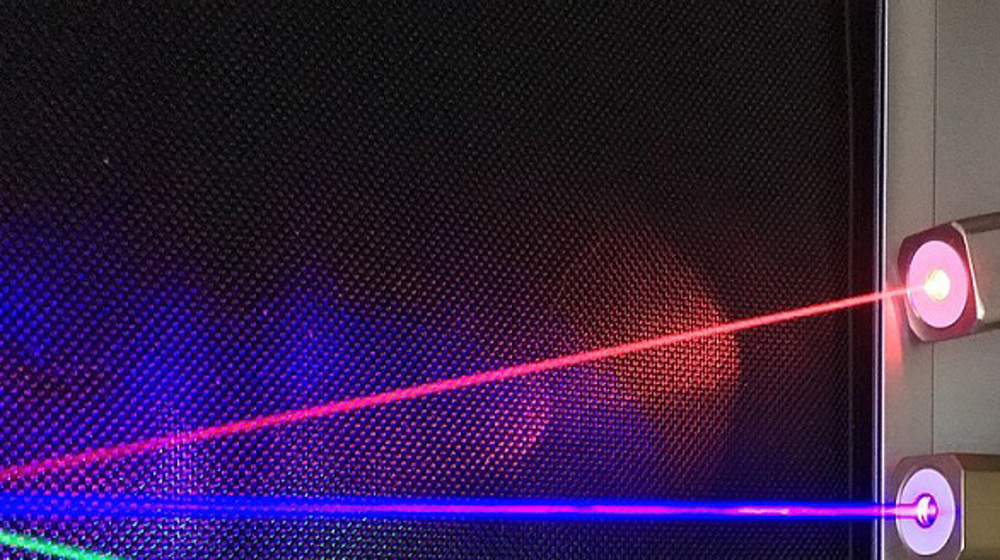EU will continue efforts to keep Iran nuclear deal alive: Mogherini
European Union's foreign policy chief Federica Mogherini says the 28-nation bloc would continue its work to preserve a 2015 multilateral nuclear agreement Iran signed with the P5+1 group of countries after the US unilateral move to pull out from the deal.
Mogherini made the remarks while speaking at a press conference in Vienna on Friday following an informal meeting of foreign affairs ministers of the EU states (Gymnich).
President of the United States Donald Trump withdrew Washington in May from the landmark Iran nuclear agreement, officially known as the Joint Comprehensive Plan of Action (JCPOA), reached between Iran and the P5+1 group of countries in 2015, and decided to re-impose unilateral sanctions against Tehran.
Under the deal, Iran undertook to put limits on its nuclear program in exchange for the removal of nuclear-related sanctions.
In defiance of warnings from the European Union, the JCPOA signatories and many international players, Trump signed an executive order on August 6 re-imposing a first round of sanctions on Iran, which were lifted under the nuclear deal, to levy "maximum economic pressure" on the Islamic Republic.
Mogherini further pointed to the 12th report released by the International Atomic Energy Agency (IAEA) certifying that Iran is still complying with all its nuclear related commitments in accordance with the JCPOA and said, "This is good news."
"Our work continues with all the member states and with other partners in the world, to make sure that Iranians and Iranian citizens can benefit from the economic relations not only the European Union's member states, but also others in the world," the senior EU official pointed out.
On Thursday, the IAEA once again reaffirmed Iran's full compliance with its commitments under the Iran nuclear deal in the second such report after the US stopped fulfilling its side of the bargain and left the multilateral agreement in violation of international law.
"Timely and proactive cooperation by Iran in providing such access facilitates implementation of the Additional Protocol and enhances confidence," the UN nuclear agency said.
Following Washington's withdrawal, Iran said it would not immediately leave the landmark deal, giving time to the other signatories -- France, Britain, Germany, Russia and China -- to find ways to compensate for the absence of Washington.
In a meeting with Iranian President Hassan Rouhani and members of his cabinet in Tehran on Wednesday, Leader of the Islamic Revolution Ayatollah Seyyed Ali Khamenei warned that Iran will leave the Iran nuclear deal if it fails to serve its interests.
"The JCPOA is a means, not the goal, and if we come to this conclusion that it cannot serve [our] national interests, we will leave it," the Leader said.
Ayatollah Khamenei noted that Tehran should not pin its hope on Europe over different issues, be it the JCPOA or the economy.
Iran says the Europeans should provide "practical guarantees" that its economic dividends of the deal would stay intact amid US attempts to pile more economic pressure on the Islamic Republic.
Iran's other partners have slammed Washington's decision to abandon the agreement, which has been endorsed by a UN Security Council resolution, saying they will work to keep the accord alive.
In a phone call to his French counterpart Emmanuel Macron on Monday, Iranian President Hassan Rouhani urged the remaining signatories to the nuclear agreement to act faster and in a more transparent way to preserve it after the US pullout.
"Iran has fulfilled all its promises in the JCPOA and, taking into account the unilateral exit of America from this agreement, it [Iran] expects the other sides to speed up their plans to safeguard this agreement and make them more transparent," Rouhani said.
The European Union is currently working to finalize an economic package aimed at keeping Iran in the deal.
Read more:
MSF chief warns Israeli ban on Gaza operations will be 'catastrophic' for millions
‘No illegal demands’: Shamkhani says US talks may bear fruit if respect, logic shown
VIDEO | Iran prepared for both scenarios: Talks or self-defense
Russia slams ‘unacceptable’ US pressure on Cuba as Trump seeks oil cutoff
Epstein advised ex-Israeli PM Ehud Barak to cooperate with US AI firm Palantir
Iran, US to hold nuclear talks in Istanbul: Report
Israeli strikes kill at least one, injure several people in south Lebanon
VIDEO | Imam Khomeini at Iran’s Neauphle-le-Château: Revolutionary influence in France













 This makes it easy to access the Press TV website
This makes it easy to access the Press TV website